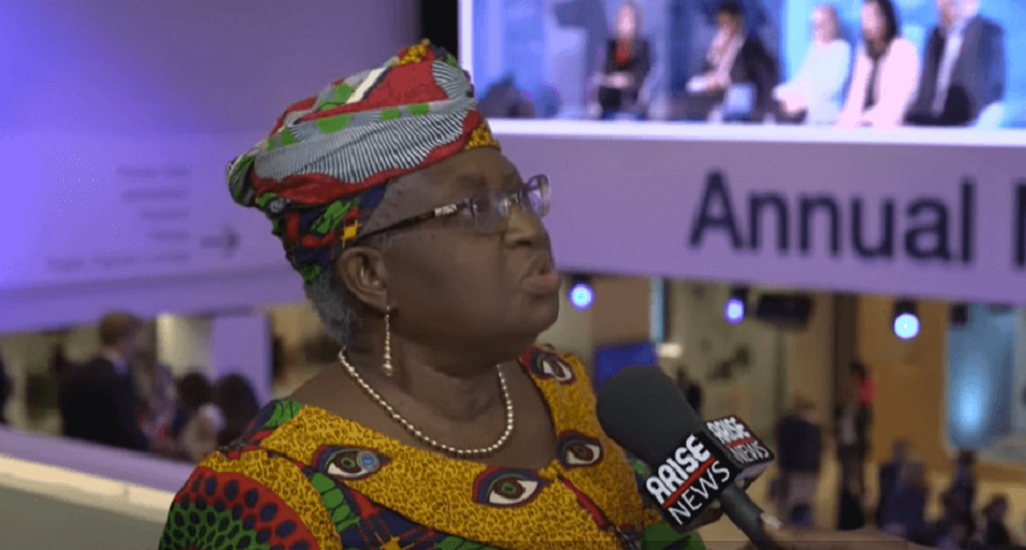The WTO Director General, Ngozi Okonjo Iweala, said the over three-month Russia-Ukraine crisis is posing a huge threat to global grain supplies.
She also admitted that the fertilizer industry was hit by the crisis.
“Right now, we are in a world facing a simultaneous crisis. An international security crisis, a global health crisis and a global food crisis, at the same time, climate change crisis,” she told Arise Tv during an interview after the 2022 World Economic Forum in Davos.
Ukraine is one of the world’s largest exporters of wheat, corn and sunflower oil.
Grains exports have fallen to 500,000 tons a month, down from the five million tons before the invasion of Ukraine.
Since the escalation of the conflict, it has been almost impossible to ship grain stuck in Ukrainian ports.
“We have another 25 million tons that will be harvested in a month’s time and the world needs it. We are focused on how to help other countries who have excess supplies to put them on the international market.
“We are focused on how to make sure our members do not put export ban restrictions on food because that will exacerbate the problem as we saw in 2008.
“So, all of these things are related to trade and I’m very concerned because 35 African countries import their food from Russia and Ukraine. Twenty two import fertilizer from that Black Sea region- Russia, Ukraine and Belarus. So, actually for the continent, it is really vital that we look at the trade implications of all these.”
Russian President Vladimir Putin over the weekend told French President, Emmanuel Macron, and German Chancellor, Olaf Scholz, that he was ready to allow Ukraine grain to be shipped on the condition that the West lift sanctions on Russia.
Putin said, “Russia is ready to help find options for the unhindered export of grain, including the export of Ukrainian grain from the Black Sea ports.
“An increase in the supply of Russian fertilizers and agricultural products will also help reduce tensions on the global food market, which, of course, will require the removal of the relevant sanctions.”
 DailyrecordNg …Nigeria's hottest news blog
DailyrecordNg …Nigeria's hottest news blog









